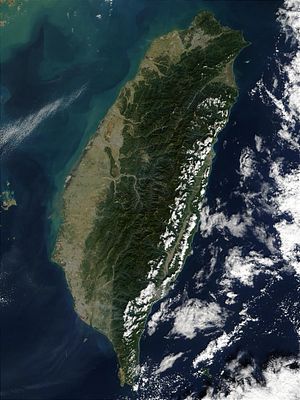Taiwan’s Kuomintang (KMT) has banked its modern political identity on promoting warm relations with Beijing. Those ties became frosty last week when the party pulled out of an annual cross-strait forum, revealing splits within the KMT as it copes with an ongoing identity crisis.
The KMT announced last week it would boycott the 12th Straits Forum, which opened on September 19 in Xiamen, due to a comment made by Li Hong, a talk show host on state-run China Central Television (CCTV).
After the KMT announced that former legislative speaker Wang Jin-pyng would lead the party’s delegation to the forum, Li commented on the forum during his cross-strait focused talk show on September 10. CCTV ran a headline during the show summarizing Li’s comments, reading: “With the strait on the brink of war, this man is coming to the mainland to plead for peace.”
The KMT demanded that Li apologize for the comment and, after it said no apology had been received, decided to boycott the forum on September 14.
KMT members could still attend in an individual capacity. Lin Rong-te, a former interim KMT chairman who is based in China, originally announced he would attend as a private citizen before backtracking in a text message to local media.
Ma Xiaogang, spokesperson for China’s Taiwan Affairs Office, said Wednesday the forum would go ahead as planned without the KMT delegation from Taiwan.
But with KMT leaders absent, China apparently downgraded its participation in the forum as well. Since the forum was first held in 2009, China had always sent the leader of its political advisory body to meet with delegations from Taiwan. But this year, Wang Yang, chairman of the National Committee of the Chinese People’s Political Consultative Conference, did not attend in person; instead he spoke to the forum in a video message. In his remarks, he decried “Taiwan separatism” and rehashed warnings that foreign assistance to Taiwan could lead to conflict, according to China’s state-run tabloid Global Times.
The forum, designed to promote cross-strait cultural and economic exchanges between Taiwan and China, was overshadowed by the KMT’s decision not to attend.
Li’s comments, which implied that Wang Jin-pyng planned to beg for cross-strait peace, struck a nerve within the KMT, which has in the past pushed for a cross-strait peace agreement between China and Taiwan.
“The overall atmosphere is now unfit for cross-strait dialogue,” KMT culture and communications committee chairwoman Wang Yu-min told reporters last week. “Any inappropriate comments or actions can seriously harm the hard-earned goodwill and mutual trust across the Taiwan Strait.”
Chiang, the KMT’s youthful chairman, has promised to redefine the party’s identity as its Beijing-friendly policies have lost resonance with young voters skeptical of the Chinese government and eager for Taiwan to remain sovereign on its own terms.
Chiang previously toyed with replacing the KMT’s longstanding policy of abiding by the so-called “1992 Consensus” – a supposed agreement between Beijing and Taipei that there is “one China,” although both sides may agree to disagree on what that “one China” entails.
However, he has recently said there is no viable alternative for the consensus, which remains popular among the party’s old guard.
Ma Xiaogang, the TAO spokesman, said Wednesday the 1992 Consensus remains a bedrock for cross-strait relations. “If this basis is altered or even abandoned, relations will inevitably stagnate and even move backward,” he said.
Commentators in Taiwan have suggested the KMT originally decided to send Wang Jin-pyng to the forum to soften the party’s pro-Beijing image. Wang is seen as a rival of former President Ma Ying-jeou, a staunch defender of the 1992 Consensus and an advocate of a cross-strait peace treaty. If even Wang (and, more broadly, the KMT) are now distancing themselves from China due to perceived insults, Beijing is not left with many potential partners in Taiwan.

































